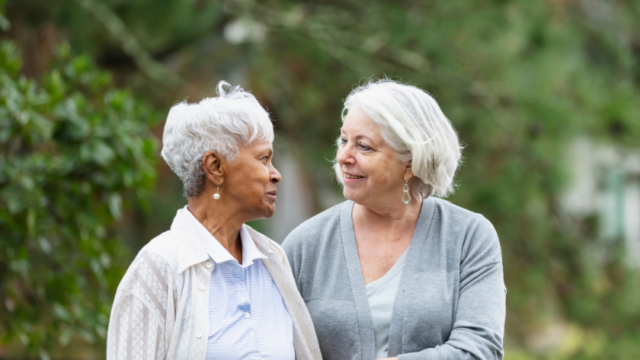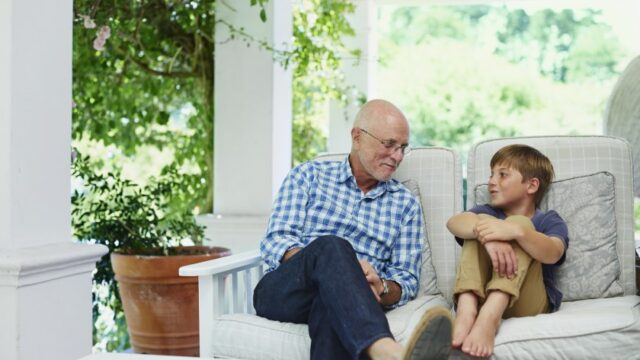
A Network Monthly Resource: January 2025
Kinship peer mentoring can provide a sense of support and understanding to kin caregivers who wish to learn from someone who has experienced a similar caregiving situation. Programs like these can also be highly effective in helping to meet a grandfamily’s practical needs for food, housing, legal and educational guidance, and more.
What is kinship peer mentoring?
Kinship peer mentoring pairs a kin caregiver with a full-time, paid kinship mentor with lived experience caring for kin. A trained peer mentor can help with any aspect of kin caregiving. For example, a peer mentor might assist with navigating legal resources or accessing financial assistance. They can also provide emotional support from the perspective of someone who has similar experiences.
Peer mentors can meet with kin caregivers in both group and one-on-one settings, and their support can be instrumental to the well-being of both new and veteran kin caregivers, helping people navigate the new and constantly changing circumstances of raising a child.
Kinship peer mentors may work in a team, allowing the mentors to support each other as they extend themselves and offer support to their fellow caregivers.
What does the research say?
A study of a U.S. Children’s Bureau System of Care demonstration project found that kinship peer mentors increased caregivers’ knowledge of available services and the permanency process. Further, the data showed significant increases in caregivers’ coping abilities and willingness to become a permanent resource for the children in their care.
What are the qualifications of a kinship peer mentor?
Lived experience as a kin caregiver is the primary requirement. Desired knowledge, skills, abilities, and characteristics include:
- Familiarity with family resources and how to access them
- Ability to build and maintain partnerships with agencies and providers
- Non-judgmental, skilled in advocacy and conflict resolution
- Ability to identify strengths, needs, and opportunities for families
- Good communication and computer skills
- Sensitivity to the needs of diverse communities
- Organization and the ability to work independently
- Good presentation skills and the ability to facilitate groups (varies with location)
- Compassion, patience, and the ability to recognize and challenge personal and institutional biases
Where can I find information about programs to train and support peer mentors?
Many states have some sort of training and credentialing program for family peer mentors. These mentor programs are often for families in which a child has behavioral or mental health needs. This list from the Substance Abuse and Mental Health Services Administration (2020) provides a good overview of the states that offer these programs and the government departments that are involved. Below, we share two examples from New York state.
- Families Together in New York State: Parent Empowerment Program (PEP) is the required training in New York State to become a credentialed Family Peer Advocate. PEP Training involves online modules, “live” Zoom sessions, and multiple coaching phone calls.
- The New York Foundling: Strong Families and Communities Training Center offers advocacy and community trainings to the social service workforce and community at no cost. There are specific trainings for family and youth peers (and their supervisors). “Open” learning experiences are for all social service professionals, including case managers, social workers, mental health counselors, and peer mentors.


